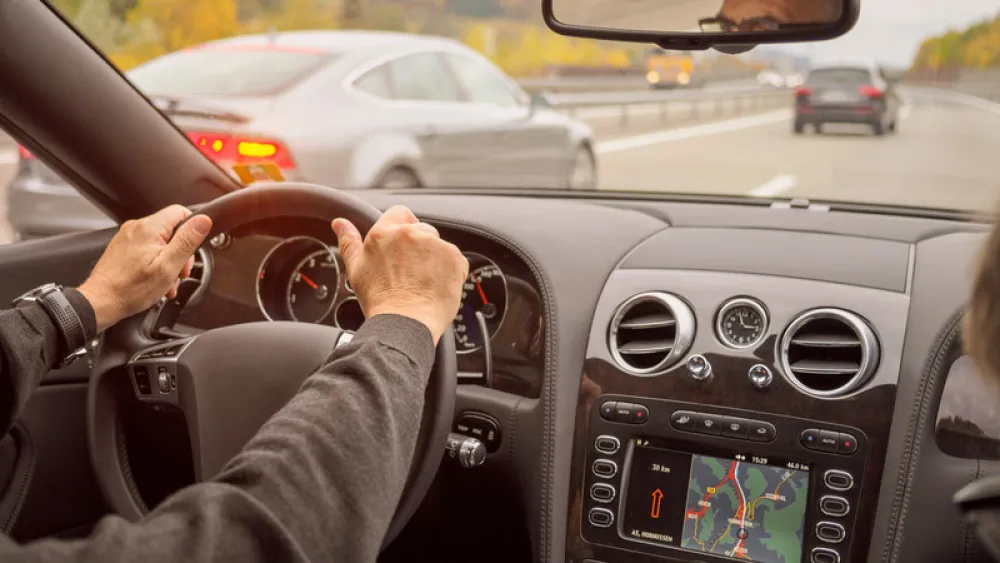Healthy Lifestyle
Older Driver Safety: Solutions That Go Beyond Taking the Keys Away


An older family member shows signs of physical or cognitive decline. A loved one is recovering from an injury or medical event like a stroke. An elderly relative is in a car crash.
Families face challenges like these every day. On top of everything you’re doing to offer support, you may wonder:
Is it dangerous for Mom or Dad to drive?
It’s a discussion many of us need to have sooner or later, but it doesn’t have to be negative. And the answer often isn’t a black or white decision to take away the keys.
Methodist Driver Rehabilitation can help
In the Methodist Driver Rehabilitation program, therapists work to help drivers of all ages facing physical and cognitive challenges. For example, we work with teens with ADHD who would benefit from one-on-one instruction, amputees using adaptive tools and drivers with Alzheimer’s disease or dementia.
When elderly drivers are dealing with changes that come with aging, we can help start the conversation and decide the best course of action.
What a driver evaluation is … and isn’t
First, I need to clear up a misconception about our work with older drivers. We see a lot of them, and many are worried we’ll take their licenses away.
That’s not what we do.
As an occupational therapist in the program, my job is to make suggestions to drivers, families and doctors. I don’t want to just give drivers life-changing news and send them on their way. Their safety and independence are my goals, and I want to have an ongoing discussion about the best ways to accomplish them.
Here’s what drivers may experience in the program.

with wheelchair access for behind-the-wheel evaluations.
Evaluations: This process begins with a discussion. Our goal is to learn more about drivers, their challenges and what matters to them in regard to their independence.
Our clinical evaluations are designed to identify physical impairments and issues with problem-solving, memory, processing, vision and executive functioning. Drivers who perform well proceed to a behind-the-wheel evaluation. That begins in a quiet parking lot after they become comfortable in one of our vehicles. The evaluation then takes drivers to environments where they’re at ease, only proceeding to more challenging situations (like highways or busy areas) if appropriate.
We’re not trying to set drivers up for failure; rather, we want to assess their current abilities and ensure safety.
Recommendations: After the evaluations, we sit down with drivers and their families to discuss what’s best for the situation. Many drivers are safe to continue as is – peace of mind that we’re glad to pass along.
For others, we may suggest restrictions of no driving on highways, at night or beyond a certain distance from home.
Of course, sometimes I have to begin the difficult discussion about retiring from driving.
Regardless of the recommendations, we don’t have the last word. They are forwarded to a driver’s physician, who will review them with the driver before making any final decisions.
Training: We work one-on-one with many people who have the potential to be safe drivers but need a little extra help in areas identified by our assessments. This could include practicing to meet specific driving goals and training to learn how to use adaptive devices.
When it’s time to restrict driving or retire
For many, driving is an integral part of life. It’s often key to an adult’s independence. As therapists, that’s very much on our minds when we discuss restrictions or retiring from driving. That’s when we become problem-solvers, working on a driver’s behalf. Resources we offer include:
- Discussion and literature on what to expect and how to talk about restrictions
- Ideas for alternate transportation arrangements, such as close friends, the ridesharing GoGoGrandparent service and area support groups
- Information on possible financial assistance
Retiring from driving doesn’t have to be an end-all for a drivers’ independence. Ideally we can help them gradually adjust while maintaining the lifestyle they enjoy.
To learn more about the Methodist Driver Rehabilitation Program, call 402-354-4670 or visit www.bestcare.org/driverrehab.


